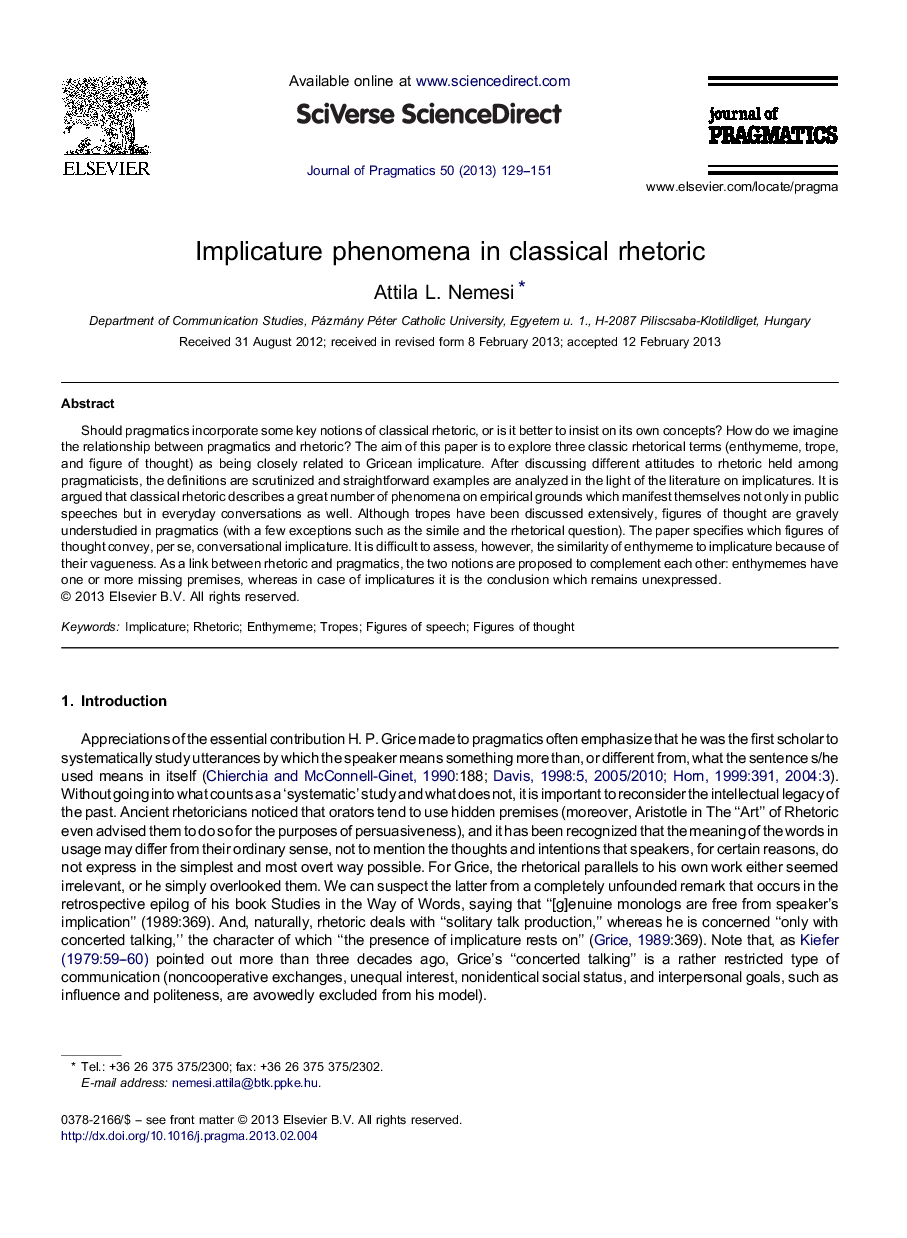| کد مقاله | کد نشریه | سال انتشار | مقاله انگلیسی | نسخه تمام متن |
|---|---|---|---|---|
| 932927 | 1474749 | 2013 | 23 صفحه PDF | دانلود رایگان |

Should pragmatics incorporate some key notions of classical rhetoric, or is it better to insist on its own concepts? How do we imagine the relationship between pragmatics and rhetoric? The aim of this paper is to explore three classic rhetorical terms (enthymeme, trope, and figure of thought) as being closely related to Gricean implicature. After discussing different attitudes to rhetoric held among pragmaticists, the definitions are scrutinized and straightforward examples are analyzed in the light of the literature on implicatures. It is argued that classical rhetoric describes a great number of phenomena on empirical grounds which manifest themselves not only in public speeches but in everyday conversations as well. Although tropes have been discussed extensively, figures of thought are gravely understudied in pragmatics (with a few exceptions such as the simile and the rhetorical question). The paper specifies which figures of thought convey, per se, conversational implicature. It is difficult to assess, however, the similarity of enthymeme to implicature because of their vagueness. As a link between rhetoric and pragmatics, the two notions are proposed to complement each other: enthymemes have one or more missing premises, whereas in case of implicatures it is the conclusion which remains unexpressed.
► Three concepts of classical rhetoric can be connected with the notion of implicature.
► The notions of enthymeme and implicature overlap one another.
► Ancient rhetoricians were interested primarily in nonconventional tropes.
► The paper argues for a two-stage model of nonconventional trope understanding.
► Some figures of thought cannot work without generating an implicature.
Journal: Journal of Pragmatics - Volume 50, Issue 1, May 2013, Pages 129–151